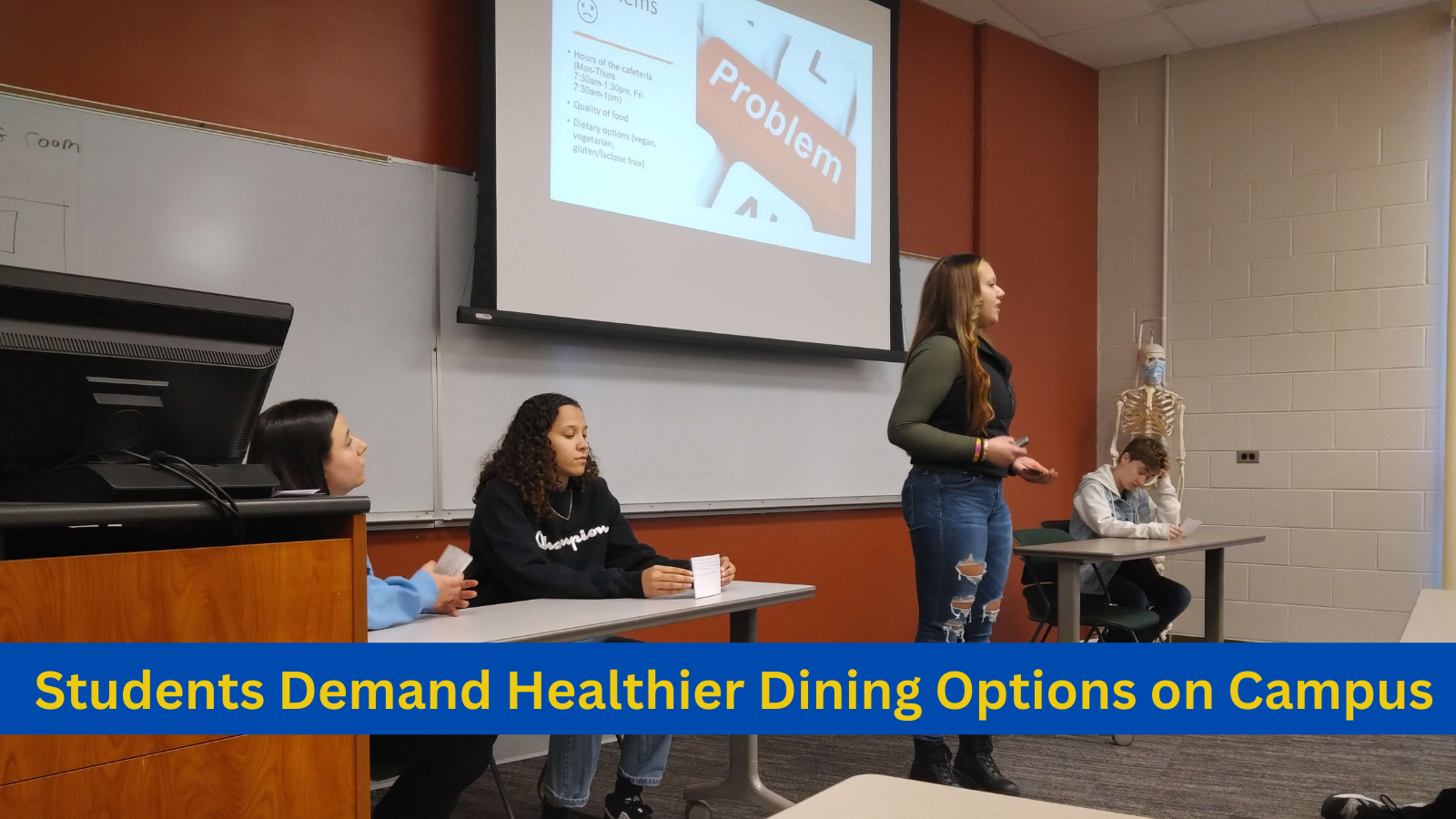Students Demand Healthier Dining Options on Campus
Stephanie McClaskey
March 5, 2023
College students require a healthy balanced diet to maintain focus, improve retention of information and provide adequate energy levels to make it through their long days on campus. In a recent presentation, students raised the concern for the quality and variety of options available at Illinois Central College (ICC) dining halls. They also expressed concerns for the proper handling and labeling protocols happening within the dining halls.
Each semester Professor Debbie Hedemann requires a presentation in her Group Communications course (Comm 203) on solving a campus issue. The students are required to adequately address an issue on campus, conduct research of how this issue impacts the student body and other college campuses, provide a solution and present a call of action to their peers.
One group chose to discuss the issue regarding the dining standards and food options available at ICC. The concerns included inadequate options for students and staff who have dietary restrictions, the lack of proper labeling of products and the difficulties in obtaining nutritional facts on various products.
“If you look on the breakfast and lunch menu on ICC website, they have zero vegan options, almost no vegetarian options and no options for people with lactose-intolerant and gluten-free restrictions,” said group member, Ryleigh Williams.
The group’s main concern was the lack of healthy options. They explained that there are extremely limited options available for vegans, vegetarians and individuals with dietary restrictions. Without access to menu items that meet their dietary needs, many students and staff who fall into these categories are forced to leave campus for food or go hungry. Do these individuals not deserve equal access to nutrition on campus?
The other concern expressed was the labels on items that are handmade and sold in the dining hall. The few items such as fruit cups, breads and various sandwiches and more, are packaged and labeled. These labels often do not contain the name of the product it is representing and never provide any nutritional information, allergen notices or the ingredients of the product, nor the date it was made or when it expires. The labels simply state the price and a barcode used to scan during purchase. For individuals with dietary restrictions, this poses not only as problematic but as a serious safety concern. Consumption of ingredients outside of their restrictions could be fatal for some individuals.
During their research the group asked dining hall staff about the contents of individual handmade products and only two of the employees could provide the information needed. The staff emphasized that inquiring about ingredients would require to look up each individual ingredient in the product making the process time consuming for students and staff, who are often on a time limit to eat and get to their next class.
“ The reason why this is done, that was told to me, is because the menu changes daily. I took that to be the daily specials because most of the menu and most of the food items presented remains consistent,” said group member, Jordan Davis.
Executive Vice President of Administration and Finance, Bruce Budde, sat in on the presentation and was the sole source of the group’s research regarding the issue. Budde ensured the audience and group members that the food is properly handled through the third-party food provider, Canteen, and is up to standard.
“Know that I take this all very seriously…It’s something very actionable from us,” Budde stated.

